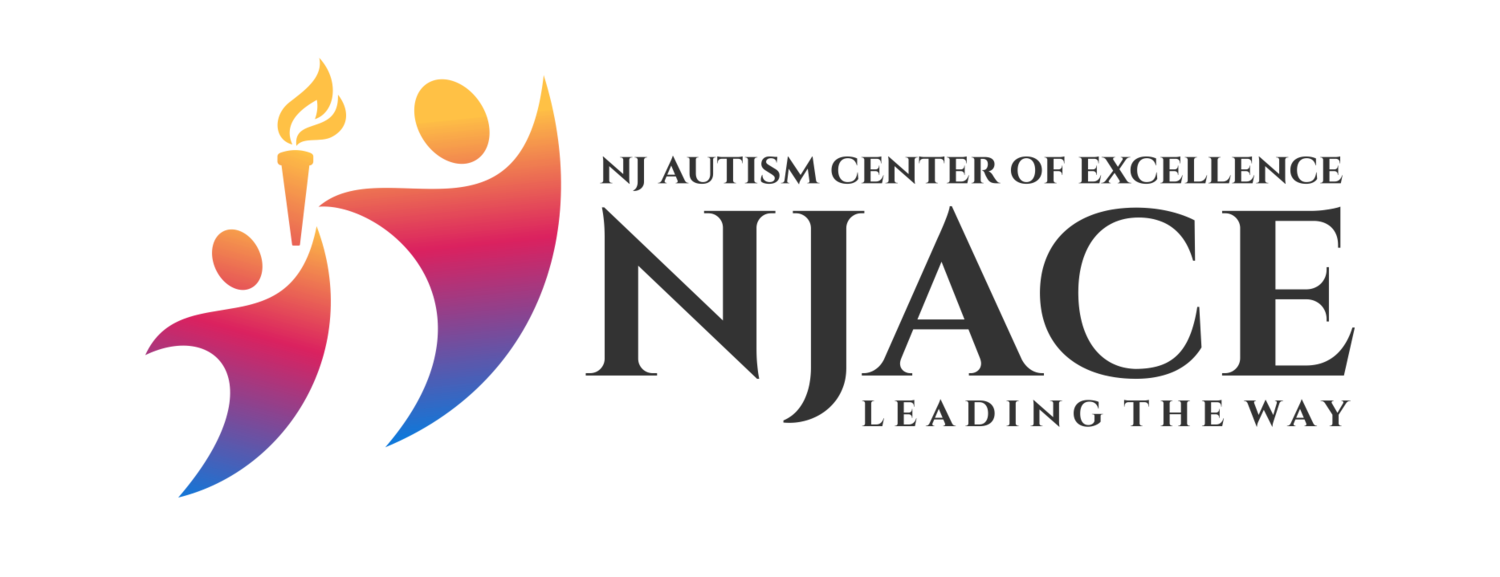
This week on Neurodiversity News, we have interviewed Jen Schonger, an ally of the autistic community and program manager for the New Jersey Autism Center of Excellence. This is what she had to say.
(Disclaimer: These views are her own and are not representative of the New Jersey Autism Center of Excellence.)
Neurodiversity News: Tell me about yourself and what you do.
Jen Schonger: I’m Jen. I’m a mom to two amazing daughters, wife to my sweet husband whom I’ve loved since high school, lifelong learner, and dachshund lover. Some may know me through the educational webinar series with the New Jersey Autism Center of Excellence, where I am the program manager. As part of my role there, I’ve led and moderated our webinar series with the intention of bringing science, ethics, and disability justice straight to the community in a free and accessible format.
Some may have also heard me on the Learn Play Thrive podcast, as well as the Meaningful Speech Lunch and Learn, to talk about my earlier experiences navigating services and figuring out my youngest daughter’s language learning style. I spend a great deal of my time reading, listening, and learning from the autistic and disabled community, and do my best to keep up to date with the latest research.
NN: What does the NJ Autism Center of Excellence do, and what impact has it had on the Autistic community?
JS: Our director, Dr. Elizabeth Torres, who is a computational neuroscientist with extensive research and expertise in the nervous systems, received this 5-year publicly funded grant for the center based on her innovative research program. We have about 18 months left to go now, but the goal of the NJACE has been to uncover and highlight scientific innovation and to center community perspectives and input.
Dr. Torres has recruited researchers from various fields, some of which do not traditionally focus on autism such as engineering, philosophy, education, and technology who could help move science forward based on their expertise to better support autistic people. Part of the endeavor of the webinar series is to make access to information easier and more digestible. Being able to read research and keep up to date with issues of importance to the community is time-consuming and can be a full-time job in and of itself. It can also be very confusing, as there is a lot of lower quality research and competing interests and opinions at play, and frequently, research of importance is not easily communicated to laypeople.
Some of the other projects we’re working on now are creating an animated short film for kids which will be led by autistic people. We’re also working on a certification program that will largely focus on the developing nervous systems and will likely be geared toward educators and other providers.
I’m not sure of the exact impact it’s had on the autistic community, but I hope it’s a good one. We are striving to work as allies to promote a more ethically and scientifically sound understanding of neurodiversity and human agency so that autistic people and their families can more easily access and advocate for supportive, respectful services that promote self-determination.
NN: What drew you to the Neurodiversity Movement?
JS: Our youngest was identified as autistic around 18 months old, although I first realized it around 11 and a half months. Initially, I felt a lot of anxiety and depression because I was afraid I no longer knew how to parent her, and I didn’t know what it would mean for her.
Part of the reason for this was the fact that we were told we needed a team of people to support her. Simple things that others take for granted, like their child accessing an equitable and inclusive education, now came into question due to the nature of our bifurcated education systems here in the U.S. For someone with no experience in any of this, it felt scary.
That being said, because she was our second baby, I couldn’t help but notice the contrast in how our culture views neurotypical babies vs autistic babies. I didn’t even have the language to talk about this phenomenon, yet I knew enough that things didn’t feel right. We had some very supportive professionals in her corner, but much of the time I just couldn’t shake the feeling of angst in regard to the overall theme of how intervention, interaction, and education is approached with autistic people.
Anything I’d seen or read about autism involved implicitly and/or explicitly ableist narratives. I won’t even get into Autism Speaks because I know Jess Wilson and others have already talked about that (Sidenote: I have never met Jess, but am so grateful for her writings over the years). But let’s just say that I too was affected by AS and other media narratives in the beginning. In general, the implicit and sometimes explicit message non-autistic parents receive is that we must take immediate action to “save” our children through behavioral conditioning. That we need to target all areas of development with goals of “improvement.” Parents are encouraged to trust the systems and procedures in place.
I am a person who manages her anxiety through learning, so I dove in and started reading whatever I could. I questioned myself a lot. My husband was instrumental in reminding me about neurobiology and I started learning more about sensory processing and development.
Early on, I read “Ido in Autismland” by Ido Kedar, which changed everything and helped me to learn about movement differences. After reading his book, I found other blogs, writings, and videos authored by autistic people, and I realized that the way autism is described by non-autistic people vs. what the autistic people are saying doesn’t match up. Scientific research like Dr. Torres’ and others provided further clarity that the dominant paradigm in autism, to which I and many others had been exposed, was wrong.
For years, parents have had to make decisions for their children’s care based on incomplete information, and autistic people have paid the price. Not only have autistic perspectives been left out of mainstream narratives and service models, but in general autism research, including research on interventions, is generally very low quality in terms of standards, conflicts of interest, and lack of harms tracking. The standards in most other fields of study are typically much more rigorous and not even comparable. This is unacceptable.
Prejudice and bias are some of the biggest barriers that autistic people face. To me, the Neurodiversity Movement is as natural and necessary as any other civil rights movement, and I feel privileged to work through allyship with the community. I am grateful for the labor of autistic people who have been fighting for their right to be seen as fully human with full human rights. And I hope to teach both of my daughters that resistance to oppression is necessary.
NN: I know a lot of your videos talk about how awful ABA can be. Do you have any advice for parents on how they could pull their kids out of ABA and into better alternatives?
JS: I want to first say that we’re all doing as well as we can with the information we have been
exposed to. As parents who are newly introduced to autism and what that means for our
individual kids, we have an awful lot of subpar science and ableism (especially our own!) to
wade through. And I do think most people in the helping professions have good intentions.
But many times, expertise and research validity have been oversold. We have to question not
just the quality of the research or service, but also the bias of the individuals and services
involved in how we come to make decisions for our kids.
I have a lot of regrets thinking back to when I was less informed. I was certainly vulnerable to
misinformation and ableism as well. I was acting out of fear instead of trusting myself and my
kid. This fear was not unfounded, by the way. We have an interventionist culture that tells us
that disability is bad and we must intervene as quickly as possible, with goals of normalcy and
“independence.” Again, we need to ask whose agenda is being served.
Autistic researcher Rua Williams wrote this: “The locus of pathology exists not in the autistic
person, but in the interaction between a hostile environment and the subjugated autistic. It is
essential for parents, practitioners, educators, and autistic people themselves to ask the crucial
question—Is the autistic a machine, or an organism? Are we active agents in our own embodied
experience, or are we a locus of behavior? It is not with defiance, but autonomy, that I declare as
an autistic person—I am not a manifestation of stimuli and response. I am agential. I am
Autonomously Autistic.”
Really let that sink in.
In whatever services or therapies you may be seeking for your child, find those that support and
accommodate your kid’s individual neurological differences and learning styles. There is a
growing movement of neurodiversity-affirming therapists – seek them out. Use your disability
rights lens as you think about what you want out of services for your kid.
Some of the things I ask myself when considering a service is how will it affect her autonomy?
Sensory needs? Language and communication development? Sense of self? Talk to the providers
working with your child and share your values. Sometimes, due to the nature of our current
systems, we don’t have much choice. In those cases do what you can to mitigate harm and place
firm boundaries on what you consent to or not.
Lastly, realize that the reason it may be difficult to find and access many alternative services is
largely due to the low research standards and conflicts of interest that have plagued autism
research and practice. It is NOT because ABA is superior. Add in bifurcated education systems
where the implicit message is “you have to prove yourself to be included” and here we are. On
that note, speak up however you can. Go to your local school district meetings and bring up these
issues to both staff and parents. Share information with your friends and family. Look for the
stories and experiences of other autistic people. I realize it can be exhausting to continually
advocate for your kid’s basic human rights but know that you aren’t alone.
I’ll end with the advice a good friend of mine has always reminded me of during times when I
have been worried about rocking the boat during my advocacy: “You get one shot at your kids’
childhood.” Always speak up.
NN: Who are your greatest inspirations?
JS: Definitely my girls. But I’m not sure if there’s just one person. I have been able to connect with
and learn from so many amazing people whose perspectives and experiences have truly changed
me. I feel like my inspiration comes from a place of interdependence in that I realize the value of
diverse human experiences and perspectives to broaden my own understanding, and the fact is
that no one person will have all of the answers. We all need each other.
NN: What are your goals for the future?
JS: Aside from a nap? I kid. LOL Honestly, I’m not sure yet. I hope to continue doing what I’m
doing in some form or another and I’m also very interested in continuing education in disability
studies. Overall I hope to continue learning from researchers who are working on research and
technology that can accommodate autistic people, and to continue amplifying and learning from
the autistic and disabled communities so that we can ensure basic human rights and self-
determination for all. And as a mom, my wish is that both of my daughters know how much
they are loved and valued, precisely for being themselves, and for every other person, autistic or
not, to realize the same.
